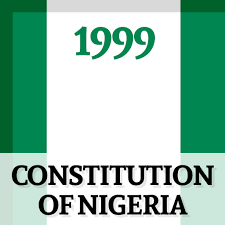The 1999 Constitution: A Product of Democratic Process, Not Colonialism
By Anthony N. Z. Sani
I have stated several times that the 1999 constitution is a clone of the 1979 constitution, which was produced democratically. This process is reminiscent of how the United States produced its own constitution.
In 1978, General Obasanjo constituted a 50-member Constitution Drafting Committee under the leadership of Justice Udo Udoma. Chief Awolowo declined to participate, leading to the notion that they were “the 49 wise men” who drafted the constitution.
The resulting draft constitution was debated by an elected Constituent Assembly under the chairmanship of Chief Rotimi Williams before it was promulgated as the 1979 constitution. Professor Nwabueze was the secretary of the Constituent Assembly.
Many prominent national leaders who advocated for democratic values, such as Zik, Awolowo, Jakande, Bola Ige, Ajasin, Mbakwe, Aminu Kano, Ibrahim Waziri, and Solomon Lar, contested the 1979 elections.
It was the 1983 coup that suspended the 1979 constitution.
When Abiola and Abacha died and General Abubakar Abdulsami became the leader, he constituted the Justice Nikki Tobi Committee to harmonize the 1979 and 1995 constitutions into a single document to enable him to hand over power in 1999.
Read Also:
The Nikki Tobi Committee, after consulting the country, concluded that Nigerians preferred the exclusive use of the 1979 constitution. Hence, the 1979 constitution was promulgated as the 1999 constitution, with the only additions being the states and local governments created by IBB and Abacha.
When some people allege that the 1999 constitution was not produced democratically, I wonder how, given the process described above, which mirrored the production of the American constitution.
Before his passing, Professor Nwabueze admitted that he and Chief Rotimi Williams were responsible for making the national government stronger than the states, considering the fissiparous tendencies and centrifugal forces that come with diversity. I do not believe they were wrong, as a strong national government balanced by appropriate state-level power is necessary to maintain the country’s unity.
The current revenue formula, which allocates 52% to the federal government and 48% to the states and local governments, and the fact that the national government does not dictate how the lower tiers of government use their allocations, suggest that the system is working reasonably well.
While some people blame colonialism for our woes, I draw their attention to Ethiopia, which has never been colonized but operates an ethnic-based federalism and still faces nation-building challenges, as well as Somalia, a failed state despite its religious and ethnic homogeneity, and Lebanon, which has a power-sharing system among different religious groups but still lacks peace.
Most countries were created without the consent of their citizens, but many have come to terms with their realities and have been working to overcome their divisive factors. Ultimately, the usefulness of any constitution depends on the operators.
Anthony is a member of Arewa Consultative Forum
















